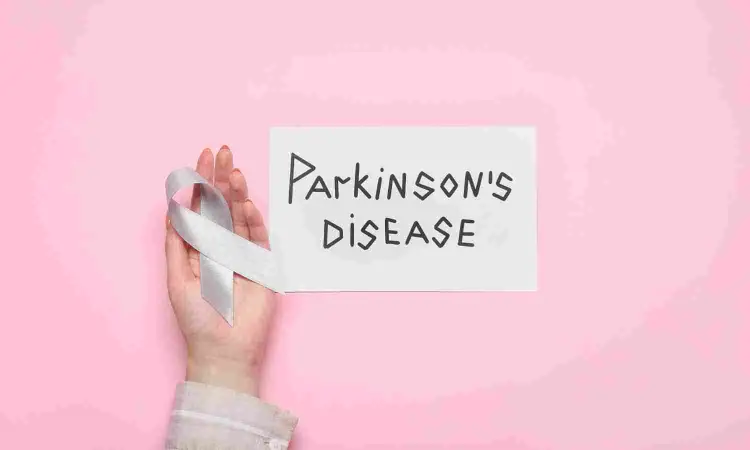- Home
- Medical news & Guidelines
- Anesthesiology
- Cardiology and CTVS
- Critical Care
- Dentistry
- Dermatology
- Diabetes and Endocrinology
- ENT
- Gastroenterology
- Medicine
- Nephrology
- Neurology
- Obstretics-Gynaecology
- Oncology
- Ophthalmology
- Orthopaedics
- Pediatrics-Neonatology
- Psychiatry
- Pulmonology
- Radiology
- Surgery
- Urology
- Laboratory Medicine
- Diet
- Nursing
- Paramedical
- Physiotherapy
- Health news
- Fact Check
- Bone Health Fact Check
- Brain Health Fact Check
- Cancer Related Fact Check
- Child Care Fact Check
- Dental and oral health fact check
- Diabetes and metabolic health fact check
- Diet and Nutrition Fact Check
- Eye and ENT Care Fact Check
- Fitness fact check
- Gut health fact check
- Heart health fact check
- Kidney health fact check
- Medical education fact check
- Men's health fact check
- Respiratory fact check
- Skin and hair care fact check
- Vaccine and Immunization fact check
- Women's health fact check
- AYUSH
- State News
- Andaman and Nicobar Islands
- Andhra Pradesh
- Arunachal Pradesh
- Assam
- Bihar
- Chandigarh
- Chattisgarh
- Dadra and Nagar Haveli
- Daman and Diu
- Delhi
- Goa
- Gujarat
- Haryana
- Himachal Pradesh
- Jammu & Kashmir
- Jharkhand
- Karnataka
- Kerala
- Ladakh
- Lakshadweep
- Madhya Pradesh
- Maharashtra
- Manipur
- Meghalaya
- Mizoram
- Nagaland
- Odisha
- Puducherry
- Punjab
- Rajasthan
- Sikkim
- Tamil Nadu
- Telangana
- Tripura
- Uttar Pradesh
- Uttrakhand
- West Bengal
- Medical Education
- Industry
Oxycodone PR or high dose levodopa not effective against parkinsonian central pain, suggests study

A new study published in the journal of Movement Disorders found that neither oxycodone-prolonged release (PR) nor higher doses of levodopa/benserazide offer significant relief for Parkinsonian central pain (PCP).
Patients with Parkinson's disease (PD) report chronic pain which has a significant negative influence on their quality of life unlike the general population. The patients with Parkinson's disease experience a wide range of chronic pain. This includes non-specific pain like musculoskeletal, radicular and restless syndrome and specific pain like dystonia and parkinsonian central pain (PCP), also known as 'central neuropathic pain'. These pains are mostly caused by various underlying neuropathic, nociceptive and nociplastic mechanisms.
The OXYDOPA study evaluated the pain-relieving effects of oxycodone-PR and increased doses of levodopa/benserazide in patients with PCP. The trial was conducted across 15 centers within the French NS-Park network and included a meticulous design to ensure reliable outcomes. This randomized, double-blind, double-dummy, placebo-controlled, multicenter parallel-group trial ensured that any changes in pain were due to the treatment rather than psychological factors.
The study included a total of 66 PD patients who reported significant PCP (measured as ≥30 on the Visual Analogue Scale) were randomly assigned to receive either oxycodone-PR (up to 40 mg/day), levodopa/benserazide (up to 200 mg/day) or a matching placebo. This was administered three times daily and these treatments were added to the existing dopaminergic therapy which is the standard treatment for PD.
The major findings of this study were:
After 10 weeks, the primary endpoint was the change in average pain intensity over the previous week, rated on the VAS. The mean change in pain intensity for the oxycodone-PR group was a decrease of 17 points (±18.5), the levodopa/benserazide group saw a decrease of 8.3 points (±11.1) and the placebo group experienced a decrease of 14.3 points (±18.9). When compared to the placebo, the difference was negligible for both treatments. Oxycodone-PR showed an absolute difference of -1.54 points, while levodopa/benserazide showed a difference of +7.79 points
All-cause adverse events were experienced by a comparable percentage of participants in each group. Oxycodone-PR was associated with the highest rate of trial dropout (39%) when compared to levodopa/benserazide (5%) and placebo (15%). In summary, despite low tolerance of oxycodone-PR, the findings of this study was unable to derive if this was better for PCP patients than a higher dosage of levodopa.
Reference:
Brefel‐Courbon, C., Harroch, E., Marques, A., Devos, D., Thalamas, C., Rousseau, V., Ory‐Magne, F., Fabbri, M., Maltête, D., Rouaud, T., Drapier, S., Tir, M., Thobois, S., Salhi, H., Corvol, J. C., Castelnovo, G., Lagha‐Boukbiza, O., Fluchère, F., Frismand, S., … Rascol, O. (2024). Oxycodone or Higher Dose of Levodopa for the Treatment of Parkinsonian Central Pain: OXYDOPA Trial. In Movement Disorders. Wiley. https://doi.org/10.1002/mds.29878
Neuroscience Masters graduate
Jacinthlyn Sylvia, a Neuroscience Master's graduate from Chennai has worked extensively in deciphering the neurobiology of cognition and motor control in aging. She also has spread-out exposure to Neurosurgery from her Bachelor’s. She is currently involved in active Neuro-Oncology research. She is an upcoming neuroscientist with a fiery passion for writing. Her news cover at Medical Dialogues feature recent discoveries and updates from the healthcare and biomedical research fields. She can be reached at editorial@medicaldialogues.in
Dr Kamal Kant Kohli-MBBS, DTCD- a chest specialist with more than 30 years of practice and a flair for writing clinical articles, Dr Kamal Kant Kohli joined Medical Dialogues as a Chief Editor of Medical News. Besides writing articles, as an editor, he proofreads and verifies all the medical content published on Medical Dialogues including those coming from journals, studies,medical conferences,guidelines etc. Email: drkohli@medicaldialogues.in. Contact no. 011-43720751


